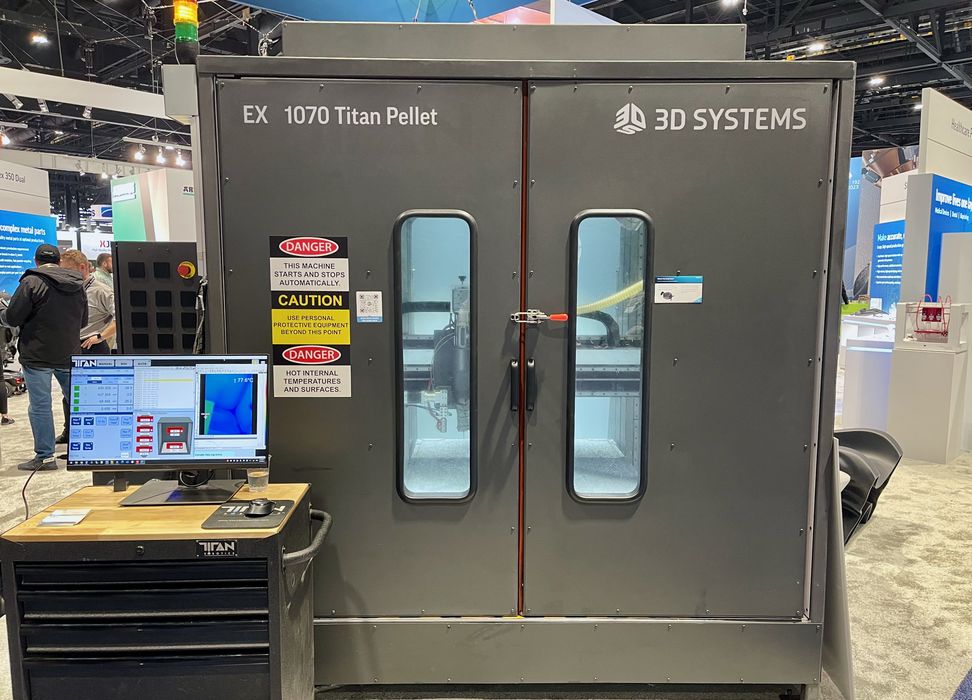
3D Systems announced a partnership in Japan that reveals a side effect of corporate acquisitions.
The partnership is with SWANY Co., Ltd., a Japanese firm that provides a variety of services around 3D printing, including consultation, design, scanning, production and even assembly.
3D Systems explains the nature of the partnership:
“Today, 3D Systems (NYSE:DDD) and SWANY Co., Ltd. announced a collaboration intended to promote the adoption of large-format pellet extrusion 3D printing in Japan. Through this collaboration, SWANY is opening a new demo center that will include a 3D Systems EXT 1070 Titan Pellet printer — the first of its kind in Japan.“
This is good for multiple reasons. Demo centers are a critical method for introducing a new technology into a region. By nature, many manufacturing companies are quite conservative: their prime goal is to keep the existing machines running to produce as many units as possible, and any change could disrupt achieving that goal.
As a result, it is often difficult to persuade manufacturing leaders to consider something new, let alone purchase a solution. The answer comes from the demo center, where, in a convenient location, potential buyers can see and touch the equipment and gain a much deeper understanding of the technology. This is very different than reading a flyer, as some people need to “see it” to “get it”.
Demo centers always generate more sales.
But there’s something else afoot here.
The announcement mentioned “pellet printing”, which you might find strange coming from 3D Systems, a company that made its fame on resin 3D printing with the SLA process. Pellet printing, a form of the FFF process is quite different.
In fact, 3D Systems does indeed have a large-format FFF solution in house. Their pellet 3D printer was part of their acquisition of Titan Robotics last year.
Titan Robotics was an interesting startup company founded by an engineer, Clay Guillory. Guillory gradually built up the company and its technology to the point where it was highly attractive for 3D Systems to make an offer to acquire the firm and its products.
While Titan Robotics was quite successful as a startup, they were still quite small and had very limited resources. Then came the 3D Systems acquisition, and everything changed.
We now see the power of 3D Systems in the deal: they were able to not only arrange the partnership with their extensive worldwide network, but also help support a new demonstration center in another country. These are things that I have my doubts Titan Robotics would have been able to attempt if they remained on their own.
Sometimes it’s thought that acquired companies basically disappear into the larger company, but that’s not always the case. Here we have a situation where the much larger 3D Systems is truly leveraging the potential of Titan Robotics’ sophisticated pellet 3D printing solution.
Via 3D Systems
